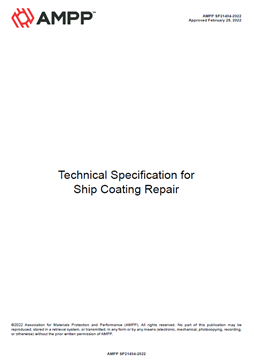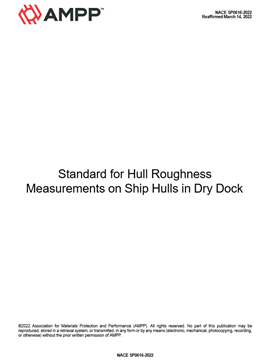Search
AMPP SP21487-2021, Inspecting and Reporting Biofouling and Antifouling Systems’ Condition during Underwater Inspections on Ships
Also Purchased
SP21421-2017 Pictorial Standard for underwater Evaluation of Fouling Degree on Ship Hulls
Product Number:
21421-SG
ISBN:
1-57590-379-2
Publication Date:
2017
$109.00
AMPP SP21494-2022, Technical Specification for Ship Coating Repair
Product Number:
AMPP SP21494-2022
Publication Date:
2022
$109.00
NACE SP0616-2022, Standard for Hull Roughness Measurements on Ship Hulls in Dry Dock
Product Number:
NACE SP0616-2022
Publication Date:
2022
$109.00




